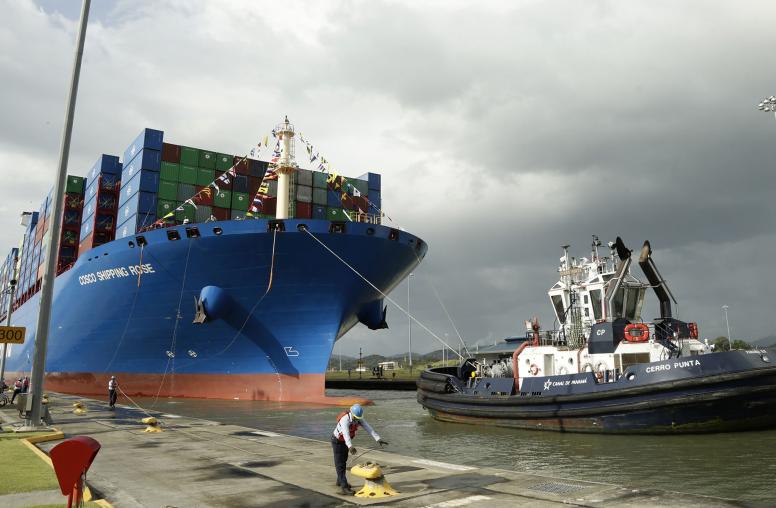Truth Commission: Panama
Truth Commission: Panama Truth Commission (Comisión de la Verdad de Panamá)
Duration: 2001 - 2004
Charter: Executive Decree No. 2, January 18, 2001
Commissioners: 7
Report: Public report
Dates of Operation: January 2001 – April 2002 (one year, three months). A additional follow up office operated until December 2004.
More than a decade past, an attempt was made to address the need to examine the past. Mireya Moscoso, widow of Arnulfo Arias Madrid, was elected president in 1999. A year later, exhumations at a former military base on the outskirts of the capital disclosed the remains of four human skeletons, including those of Jose Hector Gallego, a Colombian priest abducted by the military in 1971. On January 18, 2001, Moscoso established a truth commission.
Charter: Executive Decree No. 2, January 18, 2001.
Mandate: The Panama Truth Commission was mandated to investigate human rights violations perpetrated during the military dictatorships of Generals Omar Torrijos and Manuel Noriega between 1968 and 1989. The commission was explicitly prohibited from making conclusions on legal responsibilities of individual perpetrators.
Commissioners and Structure: The commission was made up of seven commissioners, five men and two women, led by lawyer and Catholic activist Alberto Santiago Almanza Henríquez. The commissioners were appointed by the president.
Report: The commission's final report, Informe Final de la Comisión de la Verdad de Panamá (2002) was issued April 2002 in Spanish.
Findings:
- Overall, the report concluded that the military regime engaged in "torture [and] cruel, inhuman, and degrading treatment" of the victims.
-
110 of the 148 cases of reported human rights abuses were documented. Most of the violations took place in the first years of the dictatorship between 1968 and 1972 against supporters of former President Arias. The commission discovered 24 gravesites and excavated 36 graves, many of which were located in military buildings and prisons.
- The commission recommended financial and moral reparations to relatives of the victims.
- Further recommendations included the creation of a permanent government agency to follow up on the work of the commission and to maintain its files, strict civilian control over the national police and other internal pubic security forces, improved human rights education in school, and a concerted effort at dissemination of the commission’s report.
-
The commission recommended further systematic excavations at other suspected gravesites and advised the president to reactivate the office of special prosecutor to take legal action against those suspected of committing atrocities. Further investigation was recommended in 40 cases.
- After the release of the report, an unofficial follow-up committee continued to work. On October 20, 2003, by Executive Decree 559, the Truth Commission was extended to December 31, 2004 and was renamed the Office for Follow-up of the Institutional Truth Commission (Comisión Institucional de la Verdad–Oficina de Seguimiento). The reauthorized commission reported to both the president and the Ministry of Justice.
- The office suffered a break-in after it completed its report, possibly by persons seeking to destroy its records. The records in Panama are unavailable for public access.
-
In 1992 Noriega was sentenced to serve 30 years in a Miami prison for his role in drug trafficking to the United States. In 1995 he was also found guilty in absentia of murder in Panama. In April 2010, the US extradited Noriega to France where he faces charges of money-laundering. Panama has also requested his extradition.
- "The Bodies in Panama." New York Times, February 20, 2001, 2001, sec. A. Available at http://query.nytimes.com/gst/fullpage.html?res=9C03E3D71F30F933A15751C0A9679C8B63&partner=rssnyt&emc=rss (accessed June 24, 2009).
- Hayner, Priscilla B. Unspeakable Truths: Facing the Challenge of Truth Commissions. New York: Routledge, 2002.
- Jackson, Eric. "Review of Panama Truth Commission Report." NY Transfer News, May 27, 2002. (accessed June 24, 2009).
- Jacobson, Philip. "States Line Up to Jail Noriega." The First Post, February 15, 2006. Available at http://www.thefirstpost.co.uk/1611,features,states-line-up-to-jail-noriega (accessed June 24, 2009).
- Malkin, Elisabeth. "Noriega Extradited to France to Face Charges." New York Times, April 26, 2010. Available at https://www.nytimes.com/2010/04/27/world/americas/27noriega.html?mtrref=www.google.com&gwh=9FA429E1306B55896A9DC049F9B8AB65&gwt=pay (accessed August 6, 2010).
- "Panama: Truth Commission Delivers its Final Report on Victims of the 1968-1988 Military Regime." NotiCen: Central American & Caribbean Affairs, May 2, 2002. Available at http://www.allbusiness.com/central-america/196555-1.html. (No longer available online) (accessed June 24, 2009).
- Peterson, Trudy Huskamp. Final Acts: A Guide to Preserving the Records of Truth Commissions. Washington, D.C.; Baltimore: Woodrow Wilson Center Press ; Johns Hopkins University Press, 2005. Available at http://www.wilsoncenter.org/book/final-acts-guide-to-preserving-the-records-truth-commissions (accessed October 26, 2011).
- U.S. Department of State. "Boletines De Prensa 2007: Informe Anual Sobre Prácticas De Derechos Humanos En 2006 En Panamá." US Embassy in Panama. (accessed June 24, 2009).
- Vivanco, José M. and Human Rights Watch. "Carta a La Presidenta Mireya Moscoso." Human Rights Watch, 2002. Available at http://www.hrw.org/spanish/cartas/2002/moscoso.html (accessed June 24, 2009).


